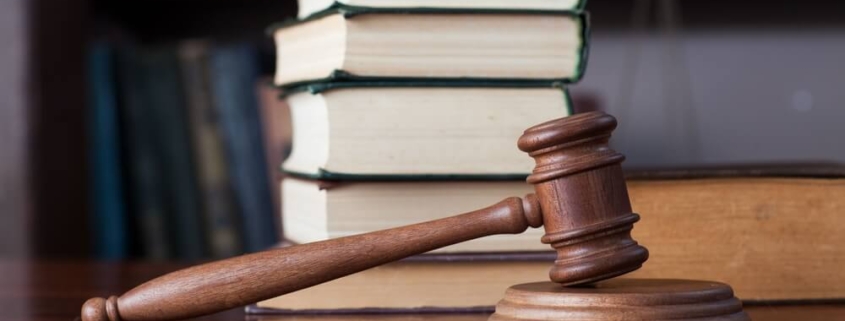The Intersection of Title IX and Criminal Investigations
When a sexual misconduct allegation occurs at Auburn University, students often find themselves navigating two entirely different legal frameworks: a Title IX process through the university and a criminal investigation by law enforcement. As someone who regularly represents students in these complex situations, I’ve seen firsthand how confusing this can be for those who are caught up in this situation.
Different Standards of Proof
Perhaps the most significant difference between Title IX and criminal proceedings is the standard of proof required:
- Title IX Investigations: Auburn University, like most educational institutions, uses the “preponderance of evidence” standard in Title IX cases. This means the decision-maker only needs to find it “more likely than not” (essentially a 50.1% likelihood) that the alleged misconduct occurred.
- Criminal Investigations: In contrast, criminal cases require proof “beyond a reasonable doubt”—a much higher standard that requires near certainty of guilt.
This difference means that a student could be found responsible in a Title IX proceeding even when there isn’t enough evidence to support criminal charges or a conviction.
Independent Processes
It’s important to understand that these two processes operate independently of each other:
- Auburn University is required to proceed with a Title IX investigation even if there is a criminal process ongoing. .
- The university is not required to delay its investigation while a criminal case is pending, although temporary delays may be granted in some circumstances.
- Law enforcement’s decision not to pursue criminal charges does not prevent the university from finding a violation of its Title IX policy.
Different Procedural Protections
Criminal defendants have constitutional protections that aren’t always available in Title IX proceedings, such as:
- The right to remain silent without negative inference
- The right to confront witnesses
- The right to a public trial by jury
- Protection against double jeopardy
While Auburn University’s Title IX process does provide certain procedural protections, they differ significantly from those in the criminal justice system. For example, while students have the right to an advisor (who may be an attorney) in Title IX proceedings, the advisor’s role may be more limited than in criminal court.
How Evidence Can Cross Between Systems
One of the most challenging aspects of parallel Title IX and criminal proceedings is how information can flow between the two systems:
Title IX Evidence in Criminal Cases
Statements made during a Title IX investigation can potentially be used in a criminal case. This creates a significant risk for students who participate in Title IX proceedings without legal counsel. Unlike in criminal investigations, where police must advise you of your right to remain silent, Title IX investigators have no such obligation.
Criminal Evidence in Title IX Cases
Similarly, evidence gathered during a criminal investigation may be used in Title IX proceedings. Auburn University’s Title IX office can request police reports and other evidence from law enforcement, although there may be limitations on what can be shared during an active criminal investigation.
Strategic Considerations When Facing Both Processes
When a student faces both a Title IX Investigation at Auburn University and a criminal investigation with the local police, , several strategic considerations come into play:
The Fifth Amendment Dilemma
One of the more complicated aspects of dealing with Title IX offenses is the fact that some of these offenses may be University policy violations but not violations of the law. Knowing how to navigate these areas is immensely important, and this is why it is critical to have experienced legal counsel in your corner advocating forcefully for your rights and interests. Timing Considerations
The timeline of Title IX and criminal processes rarely align perfectly:
- Title IX investigations at Auburn University typically move more quickly than criminal cases, which can take months or even years to resolve.
- Auburn may grant temporary delays in Title IX proceedings when there is an active criminal investigation, but these delays are not automatic or indefinite.
- Strategic decisions about requesting delays require careful consideration of how the timing of each process might affect the other.
Evidence Collection and Preservation
Evidence gathering differs significantly between the two processes:
- Criminal investigations by Auburn Police typically include forensic evidence collection, formal witness statements, and search warrants.
- Title IX investigations may rely more heavily on interviews, electronic communications, and university records.
- Understanding what evidence is being collected in each process—and how it might be used—is essential for developing an effective defense strategy.
Real-World Impact at Auburn University
At Auburn University, the intersection of Title IX and criminal investigations creates particularly complex situations for students. The university’s commitment to campus safety means that Title IX cases proceed even when criminal charges are not filed or are eventually dismissed.
For example, a student accused of sexual misconduct at an off-campus party might face a Title IX investigation even if the local prosecutor declines to file criminal charges. The university can still impose serious sanctions, including suspension or expulsion, based on its own findings under the lower “preponderance of evidence” standard.
The Importance of Coordinated Legal Representation
Given these complexities, having legal representation that understands both Title IX and criminal defense is essential. I take a coordinated approach to these parallel proceedings:
- I help clients understand how their statements in one process might affect the other.
- I develop strategies that protect my clients’ interests in both forums.
- I work to ensure that procedural protections are respected in both processes.
- I advocate for fair treatment and due process in both university and criminal proceedings.
Communication Between the University and Law Enforcement
Auburn University’s Title IX office maintains communication channels with local law enforcement, including the Auburn Police Department and the Lee County Sheriff’s Office. This communication typically involves:
- Notification when a report might constitute a criminal offense
- Coordination on the timing of interviews to avoid interference with evidence collection
- Sharing of information when legally permissible
Temporary Delays in University Proceedings
Auburn University may temporarily delay its Title IX investigation when there is an ongoing criminal investigation, particularly during the evidence-gathering phase. However, these delays are:
- Sometimes limited in duration Not automatic—they must be specifically requested and approved
- Not indefinite—the university will eventually proceed with its process regardless of the status of the criminal case
During any delay, Auburn will still implement supportive measures for all parties involved, such as no-contact directives, housing changes, or academic accommodations.
Protecting Your Rights and Future
The consequences of both Title IX findings and criminal convictions can be life-altering. A Title IX responsibility finding at Auburn University can result in suspension, expulsion, and a permanent mark on your academic record. Criminal convictions can lead to incarceration, probation, and a lifetime of collateral consequences.
With so much at stake, navigating the intersection of these two systems requires experienced legal counsel who understands the unique challenges presented by parallel proceedings.
Contact Vaughn Defense for Skilled Guidance with Title IX Issues in Auburn, AL
The intersection of Title IX and criminal investigations creates a complex legal landscape that can be difficult for students to navigate without proper guidance. Understanding the differences between these systems—and how they interact—is essential for protecting your rights and future.
I’m Artie Vaughn, and I have successfully represented countless Auburn students who have faced Title IX issues, some of them involving criminal investigations as well. If you are dealing with Title IX allegations at Auburn University, contact me for a consultation to discuss your case. The sooner you get in touch with me, the sooner I can get to work to help ensure the best outcome possible.





Leave a Reply
Want to join the discussion?Feel free to contribute!